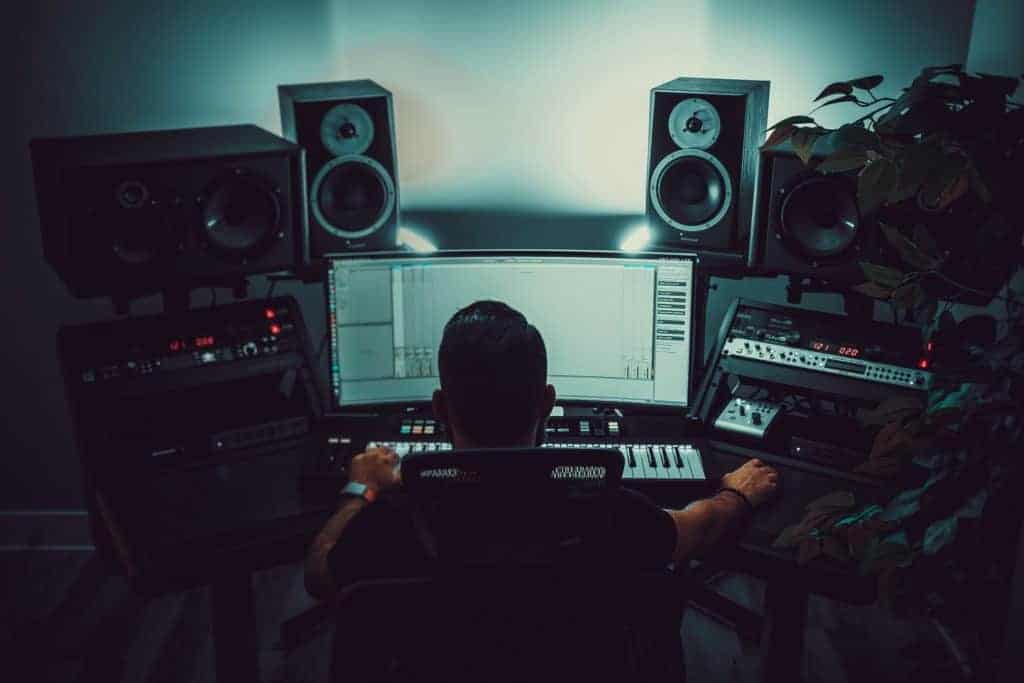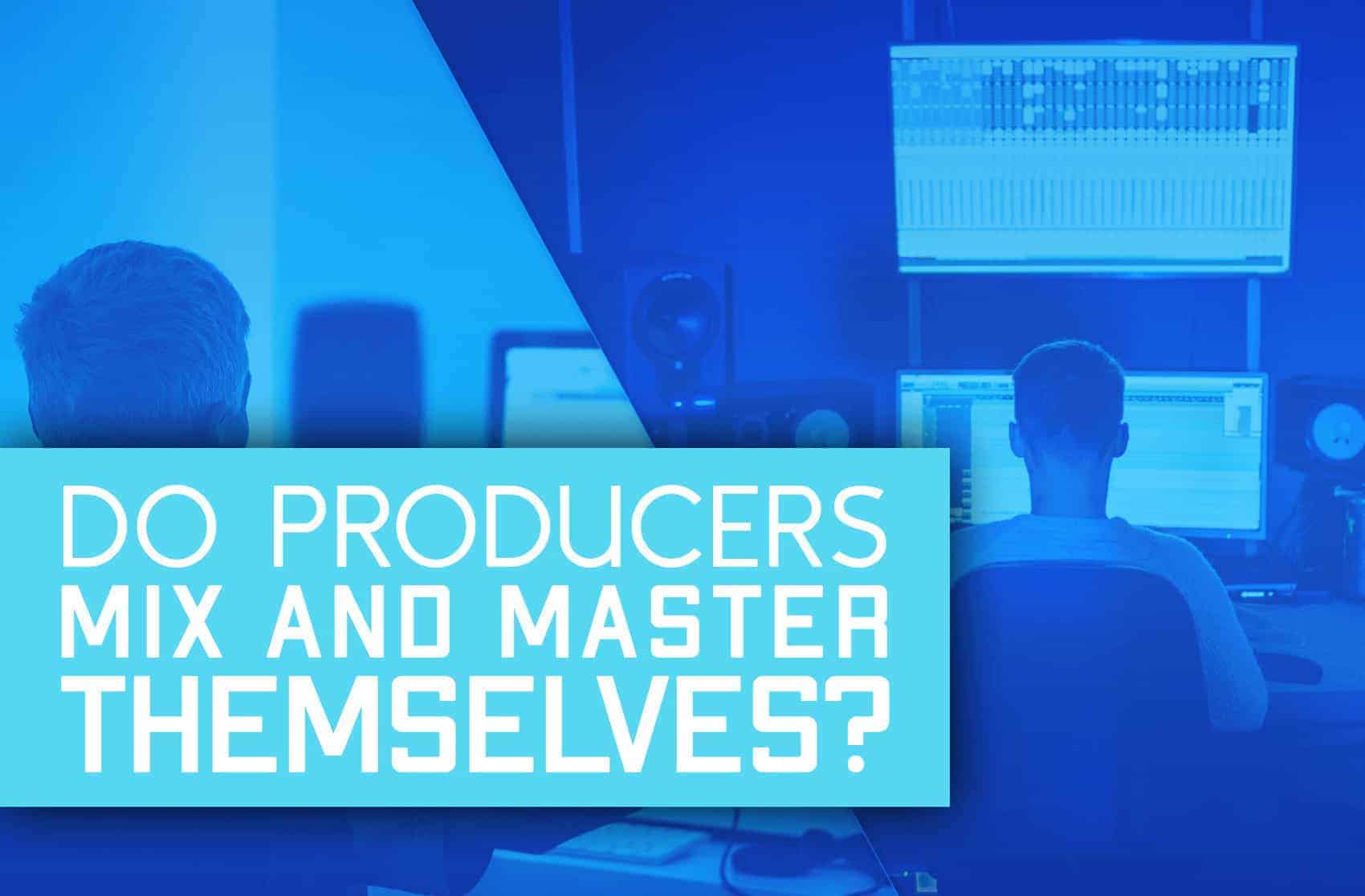Making music in the modern era requires a lot more than just talent and creativity. There is a generous handful of music-related tasks that modern producers have been given the freedom and responsibility to handle.
In this article, I’m going to discuss the practice of mixing and mastering your arrangements and compositions.
There are certain pros and cons to consider when deciding whether to take on this stage of your music-making process, and we’ll try and cover all bases in the article below.
I’ll try to give the best possible answer for each one of you, and be as accurate as possible. Therefore, this article is based on research done through a few respectable online channels and forums alongside my personal experience being a music producer and mixing engineer for over 8 years now.
Beginner producers usually mix and master their tracks by themselves due to budget limits. Professional producers usually mix roughly as they produce, and then let mixing and mastering engineers take care of the sound so they can save time and get better results.
Much like composing or arranging, deciding whether to mix and master will depend largely on your personal ability, resources, and circumstances. With this in mind, let’s begin.
Do Producers Mix More Than They Master?
Producers tend to mix their work a lot more than they master it. There are a few simple but understandable reasons for this:
- A large portion of the mixing process comes down to personal preference. Producers should have a basic idea of the desired volume levels they want for their arrangements, as well as other things like stereo imaging, textures, and effect levels.
- Mixing can sometimes spark a fresh creative idea for a song or composition, so it’s healthy for producers to be available and involved in the mixing process.
- There might be certain alignment or tuning issues that require fixing by the producers themselves.
Certain compositional parts may also need to be replayed for a better mix, in which case the producer would need to be on-hand. - Mastering engineers usually focus solely on this task, and reliable ones operate with software and gear that is specific to the mastering stage.
Why Might Someone Want To Hire A Mixing Engineer?
Finding the right engineer for your project is like finding an essential band member or collaborator that doesn’t touch an instrument. While mixing engineers can benefit greatly from being players or producers themselves, this is not a crucial area of their job.
The mixing engineer’s primary function is to organize and enhance all the audio and composition elements of a song. A good engineer can turn an average song into a good song, and turn a great song into a timeless classic.
While producers may have enough skills and tools to achieve a great mix of their own songs, finding an engineer to work with does provide a few benefits.
- An engineer is an extra set of ears that will probably be able to pick up on certain mix issues or ideas that you can’t hear.
- Using an outside engineer that you trust will allow you to focus on the composition part of your production, and increase your workflow and productivity.
- Mix engineers will more than likely possess some piece of equipment or technique that you might not otherwise have access to.
Most reliable engineers are not afraid of sharing their expertise and know-how to guide the artist’s mix without compromising creative integrity.
How To Find & Hire Great Mixing Engineers?
There are a few routes that you can take when trying to find a solid mixing engineer for your compositions. The most important thing to remember is that you need to find someone easy to work alongside.
Even if a mixing engineer has amazing talent and skills, it’s crucial to form a healthy working relationship to optimize the mixing process and make it enjoyable. You need to be able to find an engineer that is willing to make compromises during the process and also allow the producer’s final say, as you are essentially their client.
The easiest way to find a reliable mixing engineer is to search through the works of artists and albums that you use as a reference for your work. Try to seek online forums or groups with engineers in our area, or find studios that may be close to you.
Once you’ve found a pool of engineers, try to find the ones that identify with your reference works and creative image for your project. Once you’ve decided which of these engineers suit your needs and schedule, you’ll need to see if their proposed rates meet your budget.
If you do find yourself with financial restrictions, you can seek out students from local sound engineering schools to collaborate with.
Students may not have the most mixing experience, but you can often find a few that are ahead of the game and will be able to give you a decent mix at a much lower rate. Some students may offer free mixes just to increase their portfolio.
Always check the finished works of the engineers you’re working with before starting a project. There is no better way to get an idea of an engineer’s abilities than to listen to the product of their works.
How Can Producers Mix & Master On Their Own

If you have the resources, time, and knowledge base you can take on every single aspect of your recording process.
While handling all of these stages may be an all-consuming task that requires monumental effort and attention, you will have total control of every area of your production. Here are a few important factors to consider when mixing and mastering your work.
- Separate the composing, mixing, and mastering stages to allow yourself enough energy and focus to handle each job independently. Multitasking can often lead to burnout or hinder your creative flow.
- Make sure that your mixing environment is treated for optimum acoustics. There should be little to no sound bouncing off the walls or collecting in the corners.
- Your mixing station should generally be in the center of your room with left and right speakers at ear level.
- Utilize reference tracks for mixing, and test your mixes in different environments and on different speakers.
- Test your master track against other songs for loudness, clarity, and dynamic.
- Make use of LUFs to optimize the loudness of your master for each streaming platform i.e Spotify, Youtube, Radio, etc.
Final Thoughts
It is entirely possible for producers to mix and master their own compositions, but whether or not it’s a good idea is entirely up to you. You can use the pointers above to get a better idea of whether an engineer is necessary for your micing or mastering processes.
More often than not I would recommend hiring an engineer just to increase the number of skills and knowledge you have access to while recording. More than anything, try to make a decision that would ultimately serve the song or album you are working on.
Would you like to find out more about mixing your tracks? Have a look at our 10 Pro Mixing Tips article. There are some tips and techniques listed there that you can use in a variety of mixing situations. Thanks for taking the time to read through my guide on if producers should mix or master themselves.







